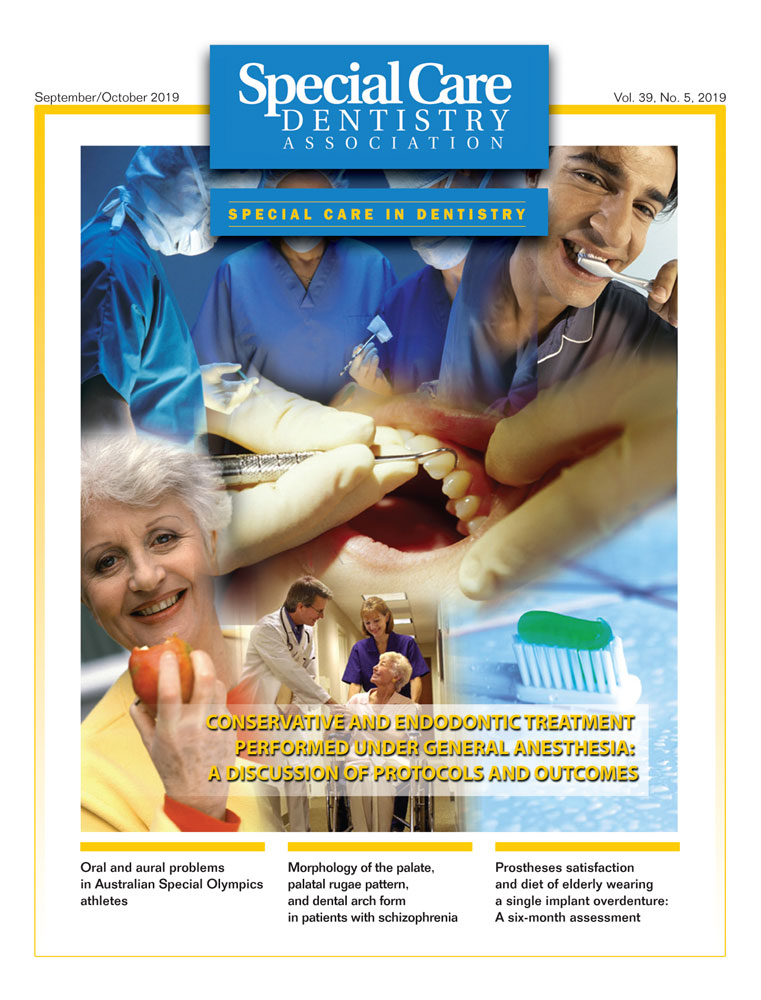Oral health assessment of independent elders in Texas
Abstract
Background
The oral health status of older adults in North Texas is largely unknown.
Methods
This cross-sectional, pilot study used the Basic Screening Survey for older adults involving a self-administered questionnaire and oral screening examination of 155 adults aged 65 years and older, in four Dallas, TX settings, stratified socioeconomically. Recruitment occurred from July 2012 through March 2014.
Results
Participants were between 65 and 90 years of age. The sample was predominantly female (64%), reflecting Texas population diversity with 49.7% White, 34.2% Hispanic, 14.2% Black, and 1.8% others. Missing teeth number (P < .019), functional contacts, untreated decay, root decay (P < .05), tooth mobility, root fragments and need for emergency treatment (P < .021) differed significantly regarding site and ethnicity. Participants at the least affluent sites (two) evidenced significant unmet dental needs and suboptimal access to care. In contrast, those at the most affluent sites (also oldest participants) had good oral health and access to care.
Conclusions
There are profound oral health disparities in urban North Texas based on socioeconomic status. These findings suggest that poor oral health is not inevitable in the elderly, as long as there is access to care. Larger-scale studies are required to broadly address oral health disparities among elderly Texans.
CONFLICT OF INTEREST
The authors declare no conflict of interest.




